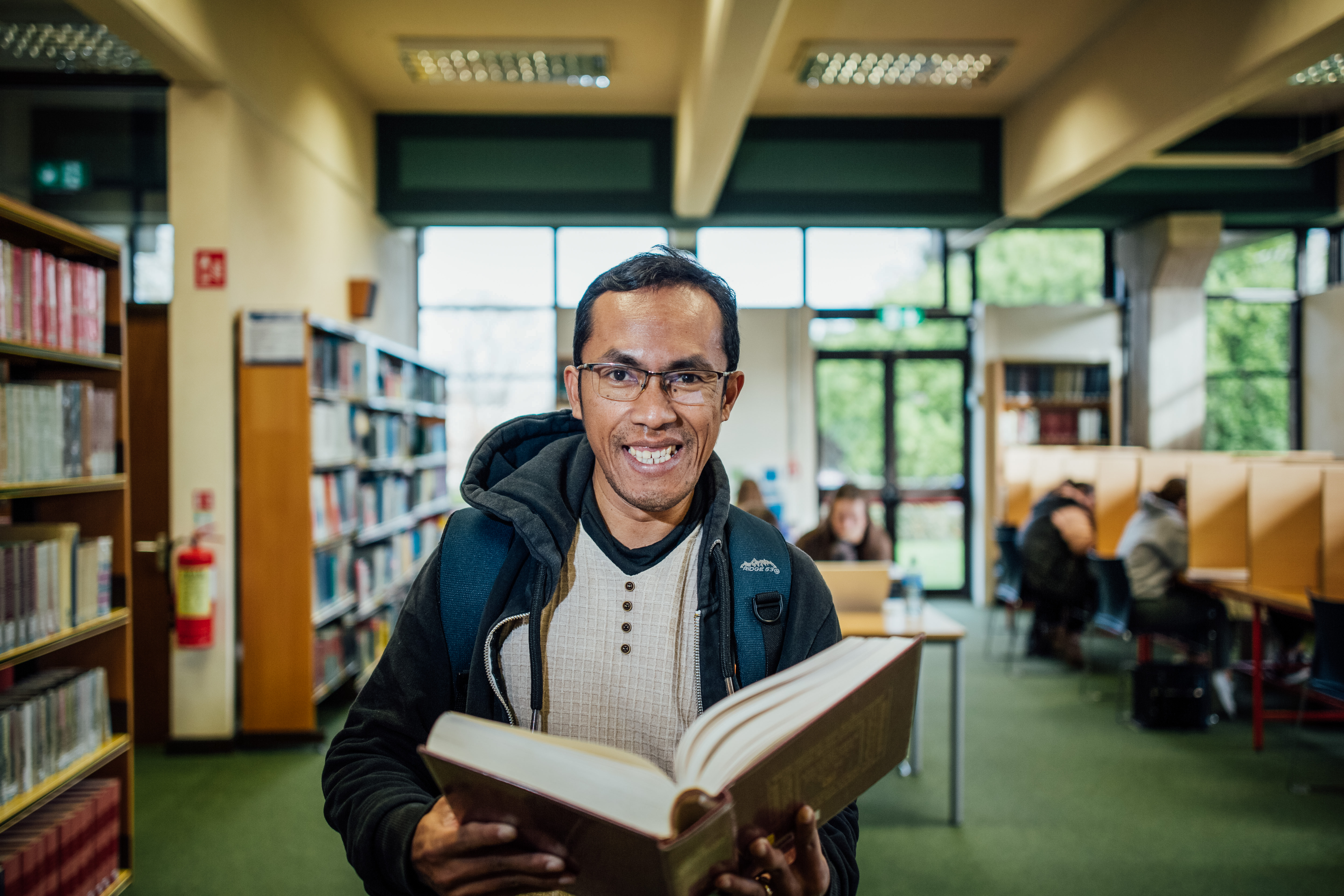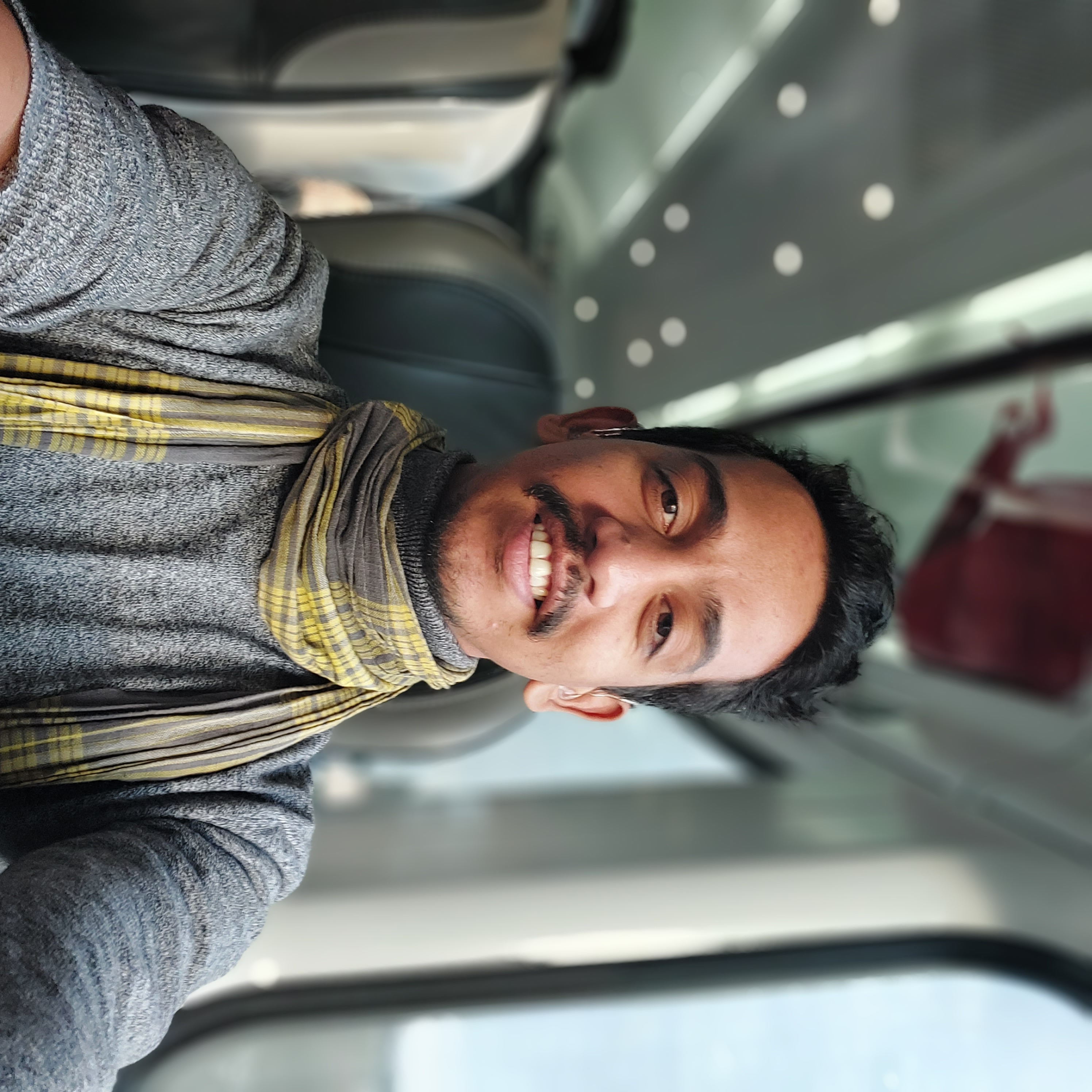International Day of Education, January 24th
Education is a human right, a public good and a public responsibility. The United Nations General Assembly proclaimed 24 January as International Day of Education, in celebration of the role of education for peace and development.
Without inclusive and equitable quality education and lifelong opportunities for all, countries will not succeed in achieving gender equality and breaking the cycle of poverty that is leaving millions of children, youth and adults behind.
The fifth International Day of Education will be celebrated on 24 January 2023 under the theme “to invest in people, prioritize education”.
We spoke to two of the Ireland Fellows, Pov and Micah, who are studying education and asked them some questions about the area.

Pov Pheung. Photo credit: MIC
Pov Pheung
Pov Pheung is from Cambodia in Southeast Asia and is studying the Master of Education at Mary Immaculate College, University of Limerick. The Master of Education discusses fundamental theories and competencies in educational leadership, programme design, pedagogies for innovation and sustainability, policies and practices and research methodologies and practice.
Why did you decide to do a master’s in the field of education? What inspired/motivated you to make this choice?
I have worked in the field of education for twenty years now. I used to work as a primary school teacher, a secondary school teacher, a district education officer and a school principal before I joined SeeBeyondBorders in 2013 which is an excellent NGO working to improve the quality of teaching and learning for Cambodian public schools. As you may have known about the troubled history of Cambodia, the country lost about 90% of its teachers and educational elites during the ‘Killing Filed’ period led by the Khmer Rouge. Since 1980, the nation has been rebuilding from zero amid ‘perfect storms of challenges’. I believe that education is the only solution. Change begins with education, and true educational change can only occur through teacher education.
How do you see the state of education in today’s world? What are some of the main global challenges when it comes to education?
The world is changing very fast. The ways we were taught twenty or thirty years ago may not fit the current perspectives of learners and society, especially in light of technology and climate change. It is crucial for educators to adopt and innovate our approach to maximise the use of technology advantage and promote further innovation, collaboration and actions for sustainable development.
Can you make a brief comparison between education in Ireland and in your own country - what are ours and your strengths? What can we learn from each other?
From the policy perspective, I am safe to say that both countries share many similarities from the curriculum design up to the education development strategies. Cambodia aims to build human capital with excellent characteristics quoted from all the around the world.
But when we come to the reality of practice, I observed many differences. In Cambodia, students are taught to remember factual statements or data all the time. Teachers rely heavily on textbooks provided by the central government. Whereas students in Ireland are motivated to express their thinking and creativity. You create learning environments that promote self-confidence and self-efficacy among learners at all levels whereas we regard obedience as the top value.
How do you see the impact of education on an individual, and on a society as a whole?
I agree with what Nelson Mandela once said, ‘Education is the most powerful weapon you can use to change the world’.
In an actual example of reality, well-educated societies enjoy designing products from a comfortable office whereas those in the ‘third world’ are searching for raw materials in the most dangerous environment setting you could ever think of. Imagine if everyone on earth receives equal access to quality education. We would have lived together in peace and prosperity. We would not have to divide and label different worlds by standards of living such as the second or third world but only one ‘shared world’ as it physically exists.
How did you yourself benefit from education? How is your community benefiting from education?
Let me give you my own story as an example. Around thirty years ago, my family lived hand-to-mouth, just like the large majority of others in my district. Parents sent their children to primary school but a few years later pulled them away from school and got them to work from a very young age. In contrast, my parents believed that education could change my life. They sent me to secondary school, and I became the first person from my district who completed secondary school in 2001. I became a teacher and was able to do many other things and proving that education brought me a variety of life chances. Gradually I could see that more and more parents supported their children to go to secondary school and above. People’s living conditions are much better, and my community has become a role model.
Ten years ago, my parents were awarded by the provincial governor for their outstanding commitment to education for their children.
What are you hoping to achieve as an educator? How is the Ireland Fellows Programme helping you in achieving that goal?
I am passionate about education, and I commit to doing everything I can to improve the quality of teaching and learning in Cambodian public schools.
The education experience in Ireland will help me build even more connections with Irish institutions and supporters so that we can strengthen the partnership for better education on the planet we all share.
Back in Cambodia, the Master’s experience will enhance my confidence and capability to work together with educators from the grassroots level up to education policymakers to bring about sustainable change for the younger generations.
Thanks to the Ireland Fellows Programme for this one in a lifetime opportunity for me to have a world-class education in Ireland.

Micah Chisholm
Micah Chisholm
Micah is from Cape Town, South Africa and is currently completing a Master's in Education (M. Ed) at Trinity College Dublin. He has selected to pursue Critical Perspectives in Education as a specialisation strand for this programme. The master's in education at TCD consists of credit modules designed to complement your specialised strand. The module consists of 3 mandatory modules and 3 electives of your choice over a one-year period.
Why did you decide to do a master’s in the field of education? What inspired/motivated you to make this choice?
Since my tenure as a lecturer in Applied Design at the Cape Peninsula University of Technology in 2014, I have observed and explored multidisciplinary educational projects which informed my teaching philosophy and practice. While I have always been driven and passionate about teaching and learning, I have always desired to learn more proactive and stimulating ways of engaging and learning with my learners. The opportunity to pursue a Masters in Education was to specialise on my praxis and discover deeper knowledge to understand the role of education on the quality of the learning experience. I also wanted to utilise this platform to share the knowledge I have acquired through experience.
How do you see the state of education in today’s world? What are some of the main global challenges when it comes to education?
Education in South Africa is a developing area of interest, and it is constantly evolving. Globally education is informed by a multitude of contextual factors and becoming aware of these elements are crucial. Through understanding the history and policies that shape an educational experience, we can understand how to enhance and improve the experience for learners. While the intention is to promote education to be accessible, inclusive, and equal for all, it is crucial to identify the factors that inhibit potential and to navigate how to address these challenges.
Can you make a brief comparison between education in Ireland and in your own country - what are ours and your strengths? What can we learn from each other?
Education is a broad discipline that comprises of various elements such as the curriculum, stakeholders, policies, infrastructure, and support systems. The individuals who participate and contribute to this discipline are specialised and well informed with the sole purpose of promoting the vision of learning platforms. An education experience could be measured by how well it is designed and implemented. It is also important to take note that several factors are instrumental in shaping the experience. To make a comparison on education between Ireland and South Africa would not be fair however, what can be highlighted is that different contexts present areas of strengths and potential challenges that need review. It is important to recognise that being able to become a student within a space that promotes learning is a fundamental human right. To share and participate in the learning experience demonstrates the tremendous efforts that have been made to position learning as accessible. The aspects of learning experiences which reveal potential for development and improvement is the nature of how factors and elements develop and evolve. The inclusivity of intersectionality in education through globalisation and cross-pollination of disciplines and cultures present opportunities that were previously not apparent and therefore, through revision of policies and support systems, adaptations can be made to promote and encourage supportive change.
How did you yourself benefit from education? How is your community benefiting from education?
My experience of education in South Africa was defined in which I had to adapt and optimise strategies to best support my learning needs. As someone who is Hard of Hearing (HOH), in South African education between the years of 1995 and 2011, I can recall several challenges when I entered mainstream education. While adapting into mainstream education was challenging, I was able to fulfil the requirements in achieving a ‘certificate of access’ to continue to pursue tertiary education. Through pursuing a creative degree and drawing on the strategies I have adopted and adapted to be equally relevant, I become more familiar as a solution-driven practical individual. While my experience was challenging, it has helped me to develop a sense of empathy which instilled the desire to intervene to offer encouragement and support to others when faced with problems. Through this awareness of identifying challenges and understanding the power of support and encouragement towards helping others keep up in the competition, assisted in developing an astute awareness and interpretation of where and how education spaces are not yet well designed to assist the spectrum of learners in society. It is through these qualities that people have been drawn to seek guidance and were willing to collaborate as they trusted my role in facilitating their journey.
What are you hoping to achieve as an educator? How is the Ireland Fellows Programme helping you in achieving that goal?
Initially I came to Ireland to pursue a masters to develop a technological solution for one of the issues I have experienced in South African education however, after being exposed to the history of education, the global policies that shape education and the impact of societal systems on the development of human learners, I have come to realise a more critical issue. My mindset was drawn out and away from a solution towards seeing society as systems that require fine tuning and tweaking to develop better. As an educator, I am now more aware of how I can be more impactful in shaping and improving the inclusiveness of education through the policies and potentially laws that define the way in which policies are presented. This insight and awareness would not have been possible had I not been part of the Ireland Fellows Programme, and for this I am very appreciative. My vision has adapted and I am now inspired to be more proactive in the policy-making space towards alignment of education and inclusive policies to become more integrated.
Thank you to Pov and Micah for helping us to celebrate International Day of Education.